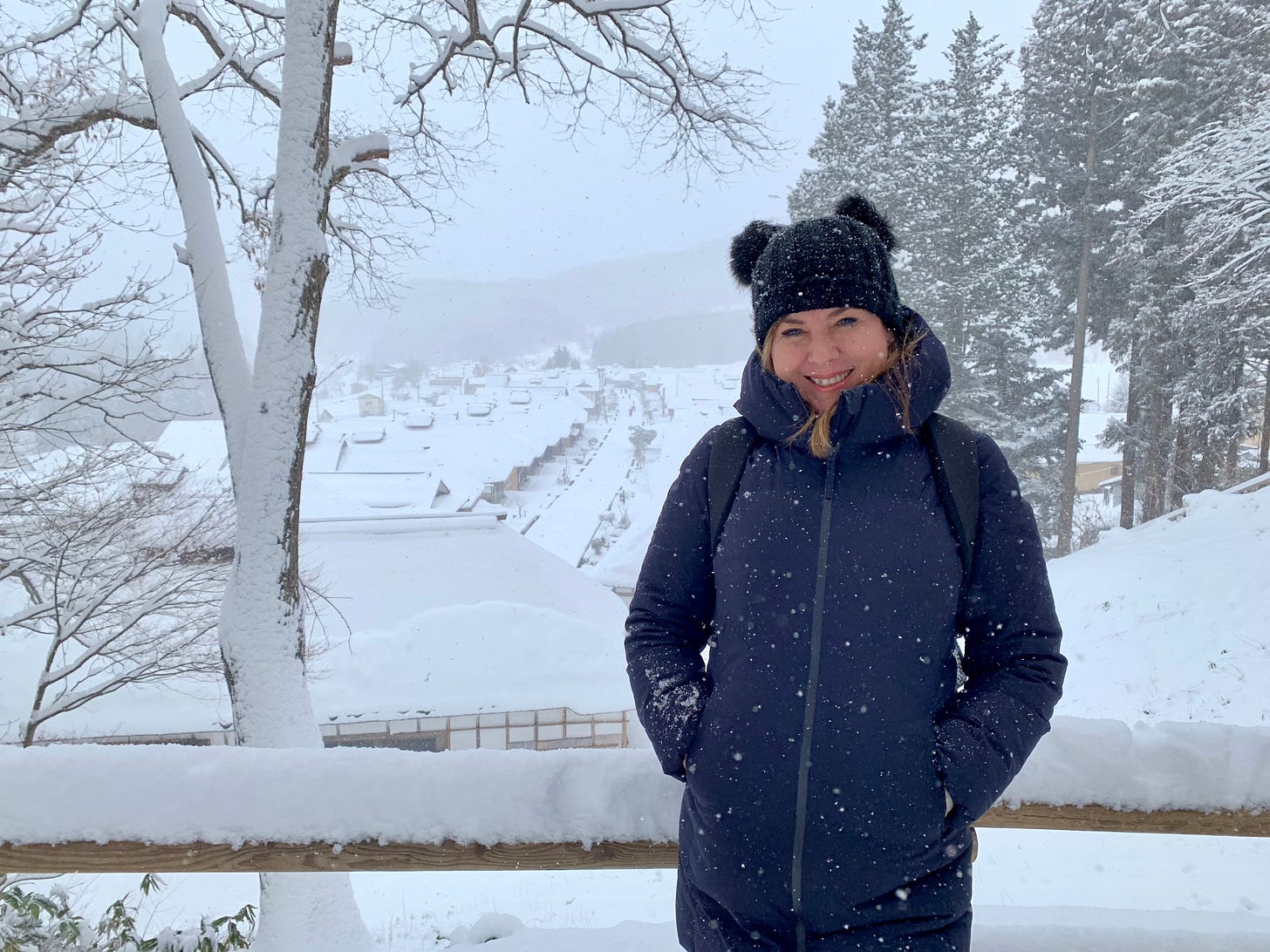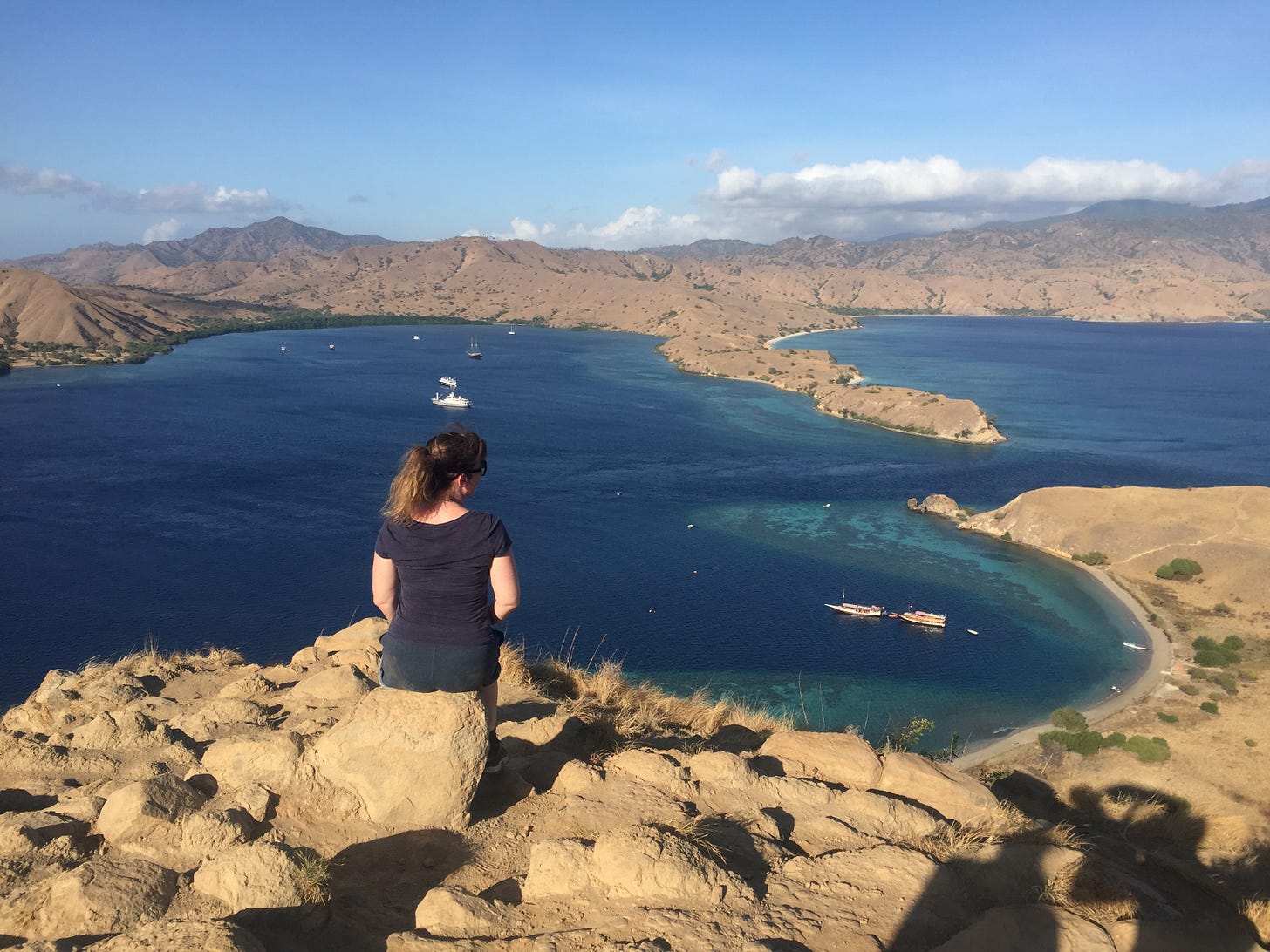Have Words, Will Travel
Meet Lee Cobaj, Hong Kong travel writer extraordinaire. Always on the move, I caught up with her at the tail end of her latest crazy adventure: a 10 week, seven country tour
Even though we’re both from Hong Kong, I actually first met Lee on Phuket. She had just moved to the island, and we’d been introduced by a mutual friend, who worked at one of the many 5 star hotels that dotted the coastline. Having landed on her feet, she was already taking on travel assignments for global magazines, and in the years since has become one of the go-to writers for top titles such as The Sunday Times, Conde Nast Traveller, and Tatler. In between assignments, I asked her what keeps her on the move.
Hi Lee! So tell me about your latest trip. Visiting seven countries in ten weeks sounds exhausting!
Hi Simon! It was exhausting! But, I'm not complaining. After two years of trying to cope with Hong Kong's stringent covid restrictions I had a lot of catching up to do, both with friends and family – whom I had been missing desperately – and with work – it was a challenging couple of years to be a travel writer, unable to travel without returning to pricey hotel quarantine, which at times extended to a grueling 21 days. I set off with the intention of going to the ILTM (International Luxury Travel Market) conference in Singapore and then to Scotland to see my family, but when the commissions started rolling in I ended up extending my trip to cover Bali, Singapore, Bangkok, the Maldives, Scotland, Switzerland and Spain!
How has life been since we met all those years ago in Phuket? Do you ever miss tropical island life?
It's been quite the adventure! When we met, nearly 10 years ago, I was just starting out as a travel writer and barely knew a single person in the industry. Moving to Phuket (basically on a whim because I thought it might be fun to live by the beach for a while) turned out to be extremely fortuitous. Just before the move, I contacted one of the editors at The Telegraph to let them know I was going to be living on the island and to keep me in mind if they ever needed a safe pair of hands. A few weeks later, the newspaper decided to massively expand its travel content and the editor got back to me with a commission for 10 hotels and a Phuket guide. That was enough to give me a reputable byline and a springboard to cover elsewhere in Thailand and then large swathes of South East Asia.
What were you doing before you started writing? Am I right in thinking you were a flight attendant?
Yes, that's right. I worked as cabin crew for Thomas Cook Airlines for nearly 18 years before deciding to go to university as a mature student to study for a degree in English and Creative Writing. Even though I had travelled all of my life – first growing up in Hong Kong and then working as cabin crew – I never imagined I could be a travel writer. I just wanted to get a decent degree so I could move back to Hong Kong and travel writing felt like one of those dream jobs which seems impossible to land. But, somewhere along the line my creative writing tutor suggested that I try my hand at it. Around the same time, one of my friends encouraged me to enter a travel writing competition she'd seen advertised in the back of a magazine a passenger had left on her flight. I had just been to Acapulco with work and wrote a story about my impressions from the trip, won second prize and, as they say, the rest is history.
Was it difficult when you started out? New writers struggle to connect with editors. How did you?
Yes, even though I was lucky enough to become one of The Telegraph's destination experts it took a couple of years of hard graft to really establish myself. The majority of my early commissions were quite small and would take me ages to write until I built up my confidence. In my first year, I only made about £8,000 and I doubt I would have been able to break into the industry without the redundancy money I had from the airline and the lower cost of living that Thailand afforded me.
I remember you telling me Twitter was very useful to make new contacts, is this still the case?
When I started out Twitter was an invaluable resource for me. I would buy travel magazines and look up all the names on the masthead and then connect with them. At the time, there were lots of friendly enthusiastic chats about travel, and joining in allowed me to learn which subjects editors were covering and what they were interested in. Despite the Muskian cesspit it’s become I’m still very active on Twitter, (I filter out as much of the noise as I can and follow people and subjects I’m interested in) but I think most travel writers and editors are more active on Instagram now.
You eventually left Phuket after a while and moved back to Hong Kong. What brought about the move?
Phuket was a stepping stone and a great learning experience but it was always my intention to move home. Hong Kong was where I grew up and is where my heart will always be.
I feel the same... How do you think growing up in Hong Kong influenced the person you are now?
I feel hugely fortunate to have been raised in Hong Kong. Aside from the obvious benefits of being exposed to other worlds and cultures from an early age, I think it helped to instill me with the city’s famous ‘Lion Rock Spirit’ (it comes from the theme song of a 1970s TV series, Below the Lion Rock), embodied by stoicism, self-belief, the importance of community and a determination to fight for the things you believe in.
How has our hometown been during these last few years? There's been so many changes...
Yeah, it would be a vast understatement to say that Hong Kong has had a difficult few years. On the surface, everything feels pretty much the same and I think tourists and expats who have no interest in looking beyond that won’t find Hong Kong any different than it was before. But the reality is that Hongkongers have been stripped of many of their human rights, our civil society has been dismantled and people now face long jail terms for anything deemed seditious under the intentionally opaque National Security Law. Youngsters have been imprisoned for Facebook posts, children’s book illustrators have been jailed for a story about sheep and wolves, others incarcerated for singing songs – things that would have been unthinkable a few years ago. Being subsumed by an authoritarian regime isn't something I ever imagined I would live through and it’s horrific to witness.
Are you still happy to be based in the city then? Would you ever consider living someplace else?
I’m obviously not happy with the blows the government are inflicting on Hong Kong people but I’m not ready to leave either. I don’t judge anyone for leaving and I don’t judge anyone for staying. I think it’s a deeply personal decision but, for now, I feel a level of responsibility to the city and the people who gave me so much and won’t be going anywhere unless I’m forced to.
As a travel writer, Covid must have been difficult. Were many magazines still looking for stories?
2020 was dire. The commissions kept coming for the first few months and then I had to get inventive. I wrote about everything from the new Castle of Magical Dreams at Hong Kong Disneyland to where airplanes go to die. My editors were all incredibly generous and kept me going through 2021 with hotel reviews and guides to update, as well as lots of news-y 'postcard from Hong Kong' type features. It was a stressful time but it also pushed me to try new things, including setting up my own business, Alembic, which offers luxury travel consultancy services to high-end hotels and resorts. It feels like an exciting new pivot and I'm thrilled with how my career is progressing. Overall, I'm feeling very positive about the road ahead.
Hong Kong has almost reopened - when do you think tourists should realistically start to visit?
‘Almost’ is the key word! The awful quarantine restrictions have been dropped but tourists still have a lot of hoops to jump through to visit, including online pre-arrival health declarations and 10 Covid tests over seven days (a combination of RATs and PCRs). Everyone also has to wear masks, use an electronic monitoring app and risks seven days in isolation if they test positive on arrival. Why would travellers put themselves through any of that when there are hundreds of other cities they can visit without restrictions? There’s never been a road map so I've really no idea when the regulations might be dropped but there are a stack of big events lined up for early 2023 – Rugby Sevens, Art Basel, Clockenflap music festival – so I’m hoping they won't be in place for much longer.
Lastly, what are your travel plans for next year?
I have a few tentative plans for next year: I'll be visiting Istanbul for the first time in February and am hoping to get to the Nepalese Himalayas around March, but generally I tend to go where the wind blows me.









Lovely interview, have to agree that Hong Kong is still a fascinating place to live. Like Lee, I don't think we will be moving out at any time. Funnily enough, between 2005 and 2011 we flew with Thomas Cook a few times from East Midlands to Spain/Canaries - perhaps we met !